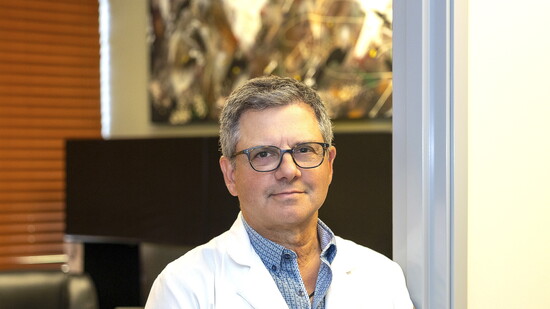For many people, heartburn is an occasional annoyance. But for those living with gastroesophageal reflux disease (GERD), the condition can become a daily struggle. GERD occurs when stomach acid repeatedly flows back into the esophagus, leading to chronic discomfort, difficulty sleeping, and in some cases, long-term damage. While medications can provide relief, they don’t always address the underlying problem.
“Primary care doctors are slow to refer people for reflux surgery because medications do a good job of masking the symptoms — but the reflux itself continues,” explains Dr. David Chengelis, a board-certified surgeon, specializing in laparoscopic and robotic surgeries, and founder of Advanced Laparoscopic Surgery, PC, in Troy (dlcsurgery.com). “The surgery goes to the root of what is causing it. We can correct the problem and, in many cases, resolve it.”
Acid-suppressing drugs, such as proton pump inhibitors (PPIs), can help manage the burning sensation associated with GERD. But they don’t stop acid from backing up into the esophagus — they only make it less painful. Over time, the constant reflux can still lead to complications, including Barrett’s esophagus, a precancerous condition.
“There’s also increasing evidence that long-term use of reflux medications can have side effects, such as depleting bone density in women,” Chengelis says. “Surgery can eliminate the need for medication altogether.”
Reflux surgery, often performed laparoscopically or robotically, physically reinforces or reconstructs the valve between the esophagus and the stomach to prevent acid from flowing back up. For non-obese patients, a common approach is laparoscopic Nissen fundoplication, in which part of the stomach is wrapped around the esophagus to strengthen the lower esophageal sphincter.
For patients who are also struggling with obesity, bariatric procedures can address both weight and reflux. The Roux-en-Y gastric bypass (RYGB), for example, is highly effective at reducing acid production and improving reflux symptoms. While the popular sleeve gastrectomy helps with weight loss, its effects on GERD can be mixed — sometimes improving, sometimes worsening reflux.
“The best surgical option depends on each patient’s anatomy, weight and symptoms,” Chengelis says. “That’s why evaluation and a customized treatment plan are so important.”
Why Robotics Are Changing the Game
At Advanced Laparoscopic Surgery, Chengelis performs nearly all procedures robotically, including bariatric, gallbladder surgery and hernia repair. While both laparoscopic and robotic surgeries are minimally invasive, robotics allow for enhanced precision and control.
“With robotic surgery, the instruments have wrist-like movements that mimic the surgeon’s hand but on a smaller, more precise scale,” Chengelis explains. “The 3D, high-definition view makes a huge difference, especially in delicate procedures. Patients benefit from smaller incisions, less pain and faster recovery.”
The benefits of reflux surgery extend well beyond eliminating the need for medication. Patients often report being able to sleep better, enjoy a wider variety of foods and live without the constant discomfort of heartburn. For those seeking a long-term solution, reflux surgery may provide lasting relief and a healthier future.
“People get great results from this,” Chengelis says. “Living with GERD impacts every aspect of your life, but it doesn’t have to be that way.”
For more about options for reflux relief, an assessment can be arranged at (248) 291-6516.
